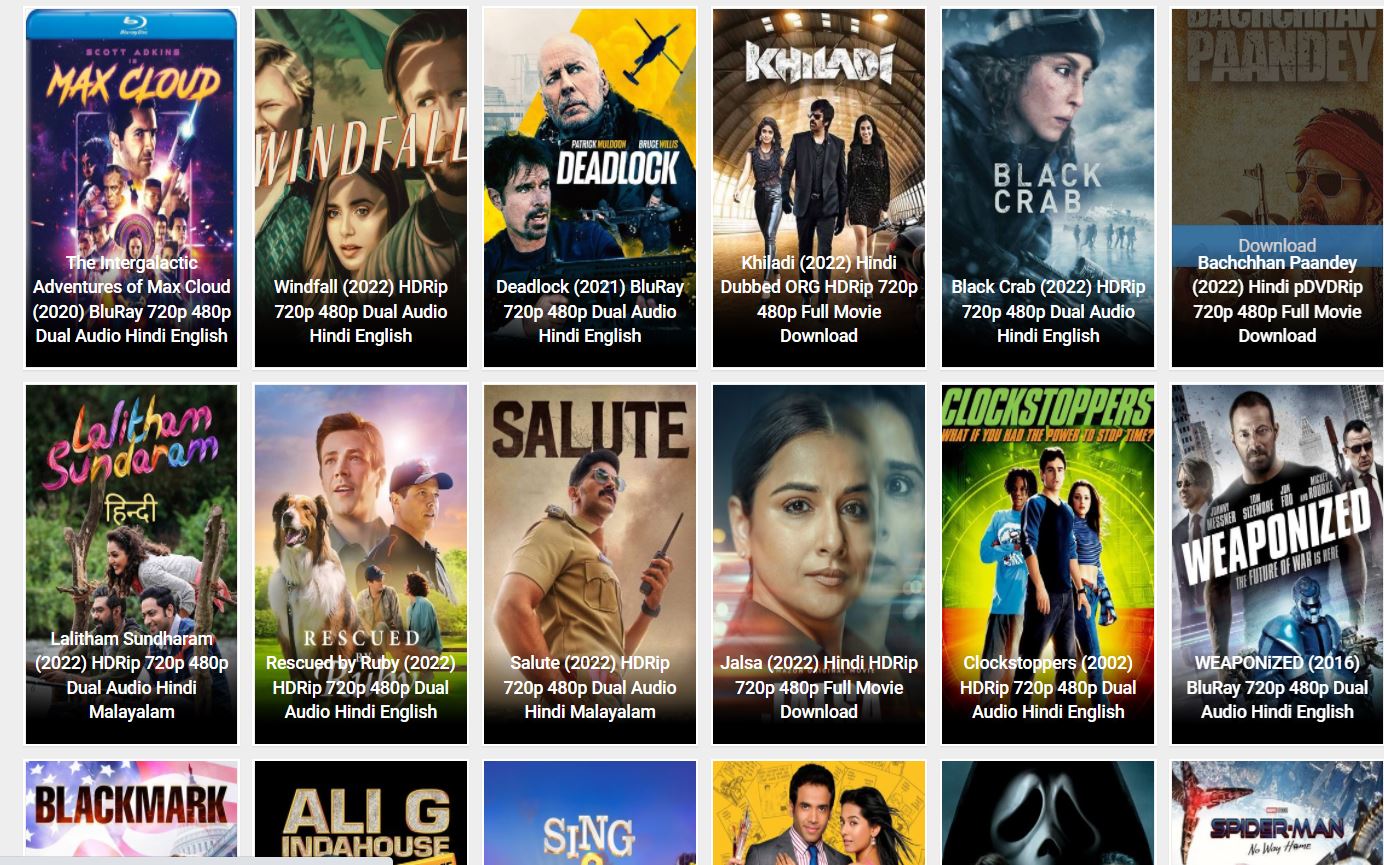Getting Your MKV Movies To Show Up: A Simple Guide For Your Home Server
Have you ever felt that little pang of frustration when your favorite movies just aren't appearing where they should? It's a common story for many who enjoy building a digital movie collection, especially when dealing with mkv movies. You've got these wonderful video files, perhaps even played them on VLC with no fuss, yet your home media server, like Plex, seems to act like they don't even exist. It's a rather puzzling situation, isn't it?
Many folks find themselves scratching their heads, wondering why their carefully organized mkv movies are invisible to their server. You might have added a bunch of films just yesterday, expecting them to pop up in your library, only to find the scan wheel spinning endlessly, or some titles just missing. It's a bit like having a treasure map but no way to find the X, you know?
This article is here to help clear up some of that confusion. We'll look at what mkv movies are, why they sometimes hide from your server, and some easy ways to get them to show their faces. We'll also talk about the tools that help, and even touch on how MKV compares to other popular video formats. So, let's get those movies playing!
Table of Contents
- What Are MKV Movies, Anyway?
- Why MKV Files Sometimes Go Missing in Your Library
- Making MKV Files Work for You
- Playing Your MKV Collection
- Frequently Asked Questions About MKV Movies
What Are MKV Movies, Anyway?
When we talk about mkv movies, we are really talking about a special kind of file called Matroska Video. This is, you know, a container file format. Think of it like a very clever box that can hold many different things inside. It's not the video itself, but rather the wrapper around it. This box can keep an unlimited number of video tracks, audio tracks, and even subtitle tracks all together in one spot. So, you might have a movie in one language, and then, also, several other language options for the sound, plus different subtitle choices, all in that single MKV file. It's quite versatile, that way.
The cool thing about MKV is that it can take various kinds of video and audio and put them all together without changing their original quality. This means if you have a video from, say, an AVI or MP4 file, and you put it into an MKV container, the picture and sound will stay just as good as they were. This is because tools like MKVToolNix, which we'll talk about a bit later, only do what's called "remuxing." They just rearrange the bits into a new container, they don't squish them down or change them at all. This is, in a way, why many people like it for keeping high-quality versions of their films.
Why MKV Files Sometimes Go Missing in Your Library
It can be really frustrating when your mkv movies don't show up in your media library, especially when you know they're good files. You can play them perfectly fine with a program like VLC, which, you know, tells you the file itself is not the problem. The issue often comes down to how your media server, like Plex, looks for and identifies files. It's a bit like a librarian who has a very specific way of organizing books, and if your book isn't named or placed just right, it gets lost.
Naming Your Files Just Right
One of the most common reasons mkv movies don't appear is because of how they are named. Media servers are very particular about file names and folder structures. For example, if you have a movie file, it usually needs to have the movie title and the year of release in its name, and often be in its own folder. So, a file named "my_movie.mkv" might not be picked up, but "Movie Title (Year).mkv" or "Movie Title (Year)/Movie Title (Year).mkv" often will be. This is, you know, a simple fix that many people overlook.
A Little Scan Goes a Long Way
After you add new mkv movies or rename existing ones, your media server needs to scan your library again to find them. Sometimes, people add files and expect them to appear instantly, but the server has to do its job first. If you've added movies and they aren't showing up, you might notice the server's scan wheel spinning for a long time. This could mean it's trying to find them, or it's stuck. A manual library scan, or even restarting the server software, can often kickstart the process and get those missing movies to appear. It's, you know, like giving it a gentle nudge.
When Similar Names Cause Trouble
A really common issue, especially with movie series, is when multiple files have very similar names. Imagine you have all the "Fast and the Furious" movies in one folder. You might find that three or four of them show up, but others are just not there. This tends to happen when the server gets confused trying to tell them apart. Sometimes, just moving those stubborn files to a different folder, or giving them a very distinct name, can make them suddenly appear. It's, like, a bit of a quirk in how these systems work.
Making MKV Files Work for You
Even with careful naming and scanning, sometimes your mkv movies still refuse to cooperate. This is where a little bit of knowledge about file processing can be really handy. Understanding what tools are available and how they work can make a big difference in getting your collection just right. It's, you know, about having the right gear for the job.
The Magic of MKVToolNix
MKVToolNix is a very useful program for anyone dealing with mkv movies. It's a collection of tools that let you do all sorts of things with MKV files without changing their quality. For example, you can use MKVToolNixGUI to add chapters to your movies, or to separate video, audio, and subtitle tracks from an existing MKV file. Then, you can mix them back together into a new MKV file, perhaps adding new audio tracks or subtitles you found. This process, which is called "remuxing" or "muxing," is incredibly fast. A 10GB MKV file can be processed in under 10 minutes, and it even handles multiple tasks at once. It's, like, super efficient for organizing your media.
This tool is especially helpful if you suspect there's something slightly off with the internal structure of your MKV file, even if it plays fine in VLC. Sometimes, a media server might be picky about how the internal tracks are arranged. Running your file through MKVToolNix can essentially "clean up" the container, making it more compliant with what your server expects. It's a good troubleshooting step to try when all else fails, you know, to just make sure everything is in its proper place.
MKV Versus MP4: What's the Real Story?
Many people wonder about the difference between mkv movies and MP4 files, especially when it comes to playing them on servers like Plex. Both MKV and MP4 are just container formats; they hold the actual video and audio. In essence, there's no fundamental difference in the quality of the video or audio they contain, as long as the original source material is the same. It's like having the same drink in two different types of bottles; the drink itself doesn't change. So, you know, the quality stays the same.
While some older devices or players might prefer MP4, the difference between MP4 and MKV in Plex is pretty much irrelevant nowadays. Modern media servers and players are very good at handling both. You might hear that MKV has slightly better "compression efficiency," meaning an MKV file might be a few megabytes smaller than an MP4 file with the same video and audio. This is due to a slight lossless compression during the muxing process. However, this difference is usually so small (a few MBs for a 4GB file) that you can basically ignore it. Both formats can also hold multiple subtitle and audio tracks, so that's not a major distinguishing factor anymore either. It's, like, a very minor detail in the grand scheme of things.
Playing Your MKV Collection
Once you've got your mkv movies showing up in your library, enjoying them is the next step. The good news is that playing MKV files is generally very easy. There are many players that can handle MKV files on nearly all computer systems and devices. If you're on a Windows computer, you can often play MKV files using the built-in Media Player. If that doesn't work for some reason, or you prefer another option, programs like VLC player are fantastic and widely used because they can play almost anything you throw at them. VLC, in fact, is often the go-to for many folks, you know, because it's so reliable.
For those who might need to convert their MKV files to a more standard MP4 format, perhaps for a specific device that's a bit picky, there are tools available. If you're just watching them yourself and don't mind a small watermark, something like EV Video Converter could be an option. If you need to send the file to someone else without any marks, you'd look for a different kind of converter. But for most personal viewing, especially with a media server setup, direct playback of mkv movies is usually the way to go. It's, you know, the most straightforward approach.
Beyond simple playback, there's a whole world of processing for mkv movies. This includes things like recompression (if you wanted to make the file smaller, though this would reduce quality), remuxing (which we talked about with MKVToolNix), and finding the right codec packs if your player is struggling. There are many guides and communities online that discuss these topics, with thousands of posts and discussions. For instance, MakeMKV is another program that helps you open discs and create MKV files from them. It's quite complex inside, but it has a very simple interface, making it easy to use for many people. It's, like, very user-friendly, actually.
Frequently Asked Questions About MKV Movies
Why are my MKV files not showing up in Plex?
Often, mkv movies don't appear in Plex due to incorrect file naming or folder structure. Plex relies on specific naming conventions to identify movies and TV shows. Also, sometimes a library scan gets stuck, or if you have many files with similar names, Plex might get confused and not list them all. Moving a stubborn file to a different folder can sometimes help it show up. It's, you know, a common puzzle.
Can I play MKV files on my computer?
Yes, you can definitely play mkv movies on most computers. Many players support them across different operating systems. For Windows, the built-in Media Player might work, but VLC Player is a very popular choice because it handles MKV files very well and is available for nearly all platforms. So, it's, like, very easy to watch them.
Is MKV better than MP4 for video quality?
When it comes to video quality, MKV and MP4 are both container formats, meaning they hold the video and audio. The quality of the video itself depends on how it was originally encoded, not the container. Both MKV and MP4 can hold the same high-quality video and audio. While MKV might offer a tiny bit of space saving due to its container design, the difference is usually so small it's not noticeable. For most uses, especially with modern media servers, the difference between them is pretty much irrelevant nowadays. It's, you know, more about what's inside the file.

MKV Movies: The Ultimate Guide to This Versatile Video Format - Copper

Mkv 300mb movies - festpooter

MKV Point Movies - Free HD Dubbed Movies In A Variety Of Languages